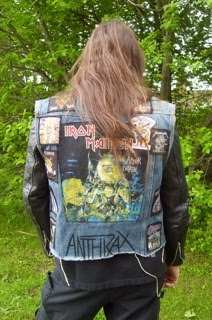Zentrum für Religion, Wirtschaft und Politik
Universität Zürich, Schweiz
Fr. 8.– Sa. 9. Mai 2015
Organisation: Florian Heesch, Universität Siegen
Anna-Katharina Höpflinger, Zentrum für Religion, Wirtschaft und Politik
Einsendeschluss: 31. Dezember 2014
Musik gilt als bedeutendes Bildungsgut. Sie wird in allen allgemeinbildenden Schulen und an Musikschulen unterrichtet; oft wird musikalische Bildung staatlich gefördert. Doch welche Rolle spielt Heavy Metal in einem Bildungskontext?
Im Zug einer Erweiterung schulischer und akademischer Lehr- und Lerninhalte steht Heavy Metal als musikalischer bzw. kultureller Bildungsgegenstand zur Verfügung. Kulturelle Bildung umfasst in einem weiten Sinn aber auch informelle Bildungsprozesse, die innerhalb von diversen Kulturformen stattfinden.
Heavy Metal als Teil von Kultur impliziert deshalb immer schon Bildung, und zwar auf
unterschiedlichen Ebenen: Zunächst gehört Wissen über die spezifische Kultur zur Fanidentität; wer eine solche erwerben und Teil der Fangemeinschaft werden möchten, muss entsprechendes Wissen erwerben. Die Frage stellt sich, wie solche Aneignungsprozesse allgemein und in verschiedenen Subgenres des Heavy Metal funktionieren? Wie lernen Fans die Konventionen der Heavy Metal-Subgenres? Was erlernen sie wodurch? Welche Wissensinhalte werden in welchen Subgenres besonders betont? Welche werden marginalisiert?
Zweitens verfügen MusikerInnen häufig über virtuose musikalische Fertigkeiten, aber auch über ein umfassendes kulturelles Wissen. Dies spiegelt sich z.B. in Expertenfragen in Magazinen (Hörtests etc.). Außerdem stellen sich Fragen nach einer Professionalisierung innerhalb des Heavy Metal. Seit Kurzem lässt sich eine Tendenz zur Institutionalisierung von Heavy Metal-Bildung in speziellen Studiengängen (Niederlande, England) sowie zur gezielten Förderung von Nachwuchsbands (z.B. durch die Wacken Foundation) beobachten. Doch wie ist diese Entwicklung zu deuten? Eignet sich der „rebellische“ Heavy Metal überhaupt als anerkanntes Bildungsgut oder steht er in Gefahr, durch Institutionalisierung und Professionalisierung zu konventionalisieren und zu verbürgerlichen?
Drittens stellt sich die Frage nach der Rolle von Heavy Metal in der Musikbildung der staatlichen Schulen. Welche musikpolitischen Vorstellungen sind mit Heavy Metal verbunden? Welche Arten der Integration dieses, bzw. Abgrenzungen gegen dieses Musikgenre sind zu beobachten? Ist Heavy Metal in staatlichen Schulen als Bildungsgegenstand anerkannt oder wird er marginalisiert?
Viertens wird auch die Universität als Bildungsinstitution sowie die Wissenschaft als Bildungsprogramm im Zentrum stehen. Hier stellen sich selbstreflexive Fragen nach den Auswirkungen der Erforschung von Heavy Metal. Was bedeutet es, wenn Heavy Metal an Universitäten und Hochschulen studiert wird? Wie prägen Forschungen über Heavy Metal die Musik und die Szene?
Neben der Darlegung von Bildungsprozessen rund um Heavy Metal soll in der Tagung auch explizit das (selbst)reflexive Nachdenken über Chancen und Herausforderungen spezifischer Blickwinkel gefördert werden.
Wir freuen uns auf Einsendung von Abstracts zu diesem Themenbereich mit max. 500
Worten Länge bis Ende Dezember 2014, inkl. Kurzbiographie des/der Vortragenden an
Florian Heesch und Anna-Katharina Höpflinger:
florian.heesch@musik.uni-siegen.de
a.hoepflinger@access.uzh.ch




